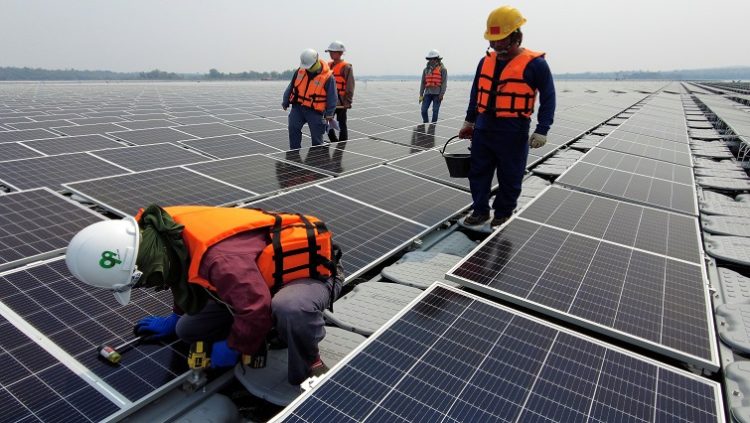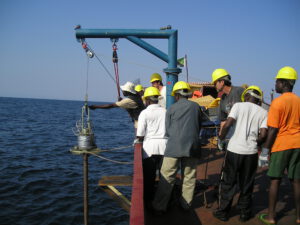Author: Kimberley Asah Nashivhale
South Africa’s population continues to be plagued by electricity crises. Although the power utility (Eskom) stressed that the country would not experience a complete blackout, commentators warn that the power grid will collapse.
Electricity demand is always high in winter, and with the current generation capacity, the coal fleet’s energy availability factor is still very low. Currently, twelve (12) hours of load shedding per day occur in SA.The crisis was exacerbated by Eskom management’s instruction to increase the load at Kusile Power Station Unit 1 to full capacity, against engineers’ advice, which led to the collapse of the flue duct in October 2022. The Kusile Power Plant, which fed 2,100 megawatts (MW) of power generation capacity into the grid, has not yet been restored.
As the saying goes, “Every cloud has a silver lining.” The Gauteng provincial government is preparing to invest R1.2 billion (€58 million) to build an 800 MW solar farm on the West Rand. This project is part of an effort to explore energy solutions compatible with the country’s climate change commitments. This project should be supported because the fourth priority of the Economic Reconstruction and Recovery Plan (ERRP) is the rapid expansion of energy generation capacity. While the Gauteng Infrastructure Financing Agency (GIFA) has identified six independent power producers who will build a solar farm, mining company Sibanye Stillwater and the Far West Rand Dolomitic Water Association have donated 30,000 hectares of land for this project.
In parallel, GIFA’s rooftop solar project is also underway. Phase 1 of the rooftop PV project aims to generate nearly 8 MW through installations in selected hospitals. Phase 2 of the rooftop PV project will install solar systems on government properties, particularly educational and healthcare facilities.
The Premier of Gauteng has also launched a project to train 6,000 young people to become solar panel installers in a bid to resolve the energy crisis. This project is a partnership between the government and the Manufacturing, Engineering, and Related Services Sector Education and Training Authority (merSETA). It is envisioned that training on installation, maintenance, and repair of various aspects related to solar energy with a focus on hybrid solarphotovoltaic systems will equip learners with business and entrepreneurial skills to help them start businesses in the growing energy sector. Creating jobs for young people by enrolling 6,000 trainee solar technicians will further combat youth unemployment.
Any work aimed at solving the current crisis should be commended in light of the challenges facing South Africa. Gauteng is the economic center of the country, and its determination to reduce dependence on Eskom will save the province from current challenges. The economy is suffering from job losses, and businesses are struggling to stay afloat because they have to spend on emergency backup power such as batteries and generators.
Critics, however, might think that the government is desperately trying to satisfy unemployed youth, especially in light of the upcoming national general elections in 2024. The government, however, has asserted that it is committed to finding a lasting solution to the electricity crisis.
Picture: Reuters
Already published – overview solar power in Africa




